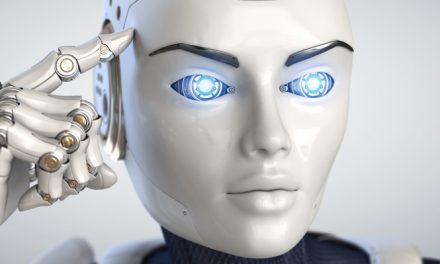The first time I heard about artificial intelligence (AI), I was at an investment conference in 1993.
After all the sessions and networking, I headed to the bar. One of the money managers I knew offered to buy me a drink.
He started telling me about AI. His wife was a flight attendant, and she mentioned her airline was using it for ticket pricing.
“The computer ‘learns’ what flights, days and times are the busiest and slowest. It then adjusts the seat prices. It’s going to be a real game changer,” he explained.
It sounded both logical and simple. He went on to explain he was using AI to manage money.
At the time, I thought that AI was a recent discovery. But I was dead wrong.
AI has been around a lot longer than I thought. I know it seems like this tech revolution just began. And in a sense, it did.
But AI started out in 1950. A brilliant young man, Alan Turing, who is also credited with developing the first computer, laid the foundation for AI.
Turing came up with a test for AI that changed the way we looked at computers. And nothing has been the same since…
Alan Turing Was the Father of AI
Turing was born in 1912 in Paddington, London. He was a computer scientist, mathematician, logician and cryptographer.
One of his greatest accomplishments was breaking the code of the Nazi Germany Enigma machines from World War II.
Nazis used Enigma machines to protect diplomatic and military communication. It was a way to change the letters used in a message so that the message appeared scrambled or random to those who intercepted it.
In 1945, the National Physical Laboratory (NPL) in London recruited Turing to begin creating an electronic computer. Turing created a design for the Automatic Computing Engine (ACE). It was the first specification of an electronic stored-program, all-purpose digital computer.
The ACE was never built. The NPL thought that Turing’s design was too difficult to build.
A smaller machine, the Pilot ACE, was built instead in 1950.
After Turing’s arrival at the University of Manchester in 1948, he worked on the development of computers by designing an input-output system and a programming system.
Turing also wrote the first-ever programming manual. And his programming system was used in the Ferranti Mark 1 — the first marketable electronic digital computer.
Turing had many breakthrough accomplishments during his short life. Those accomplishments have been the basis of many technology advancements throughout recent history.
And this is especially true when it comes to the field of computer science, computers and AI.
“Can Machines Think?”
Turing initially asked this question in the opening of his paper “Computing Machinery and Intelligence” while working at the University of Manchester.
But because the word “think” is a hard term to define, Turing replaced that question with another: “Can machines do what we (as thinking entities) can do?”
Turing believed that this question could be answered. His quest to find the answer led to the creation of the Turing test.
This test measures whether a computer has the capacity to behave like a human being.
It involves three participants: a computer, a human interrogator and another human.
The interrogator has to identify which one of the two participants is human based on their replies to different questions — all within a fixed time frame.
If the computer is misidentified as the human, then the computer was successful at doing what we (as thinking entities) know how to do.
This was a breakthrough for Turing, and it happened in the mid-20th century. No doubt, he was ahead of his time.
AI Revenue Will Exceed $89 Billion by 2025
Now, AI is a staple for most of the technologies and applications we use today. Every time you search for something through Google or get alerts from your bank when it notices “suspicious activity,” it’s all because of AI.
And that’s just the tip of the iceberg.
The benefits that this type of technology will have on our lives have just begun.
Every major company in the world is scrambling to use it. Every billionaire I know is ready to invest in AI.
PricewaterhouseCoopers estimates that AI will drive economic gains of $15.7 trillion over the next decade.
And Statista, a leading provider of market and consumer data, projects that revenue from the AI market will swell to more than $89 billion by 2025. That’s a 2,700% increase since 2016!
As I explained last week, AI will touch approximately every industry and almost every part of our lives.
It’s that big.
But believe me: These are the early days of AI. Fortunes will be made for years to come…
And I’ve found the one company that stands to make millions for its investors.
This company is at the forefront of this huge trend. More details to come next week!
All my best,

Charles Mizrahi
Senior Analyst, Banyan Hill Publishing










